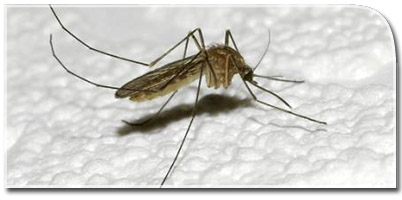Does Snow Create More Mosquitoes?

Yesterday morning in Virginia Beach we woke up to frigid temperatures and a lot of snow and ice. I then looked at the forecast and saw we’re still getting some record low temps over the next week. The same goes for many parts of the United States as we dig our way out of snow! So what does all this snow and cold weather mean for the 2015 mosquito forecast?
Mosquitoes are very resilient. Their eggs (and some adults when sufficiently protected) can survive through freezing temperatures. All this cold weather will only postpone the influx of mosquitoes and could actually increase the number come spring. Mosquitoes are generally active when the temperature stays above 55 degrees, so you probably won’t notice a lot of activity from mosquitoes until the overnight freezes (or snow storms!) become less common. This may occur later in the season than it normally does but when it does happen, it could make for an especially tough mosquito season. That’s because the one thing mosquitoes need to breed is standing water. So far, this year has had a lot of precipitation with rain and snowfall. The rain, along with melting snow and ice will result in a lot of standing water, which could mean a lot of mosquitoes. Not only is standing water necessary for mosquito production, but it’s also their lifeline once they are mature. Mosquitoes don’t venture far from the area where they matured, so if you take care of the standing water on your property, you are instantly decreasing your mosquito population.
Depending on where you live, you may not be thinking about warm weather, mosquitoes or how to treat them if you’re shoveling snow out of your driveway, but don’t let your guard down. Remove all standing water once that snow starts to melt! And a lot of Mosquito Joe locations have specials going on for the beginning of the season, so give them a call to make sure your yard doesn’t have an influx of mosquitoes come spring. Our barrier treatment is the ultimate step in avoiding the bites this season. Stay warm!



